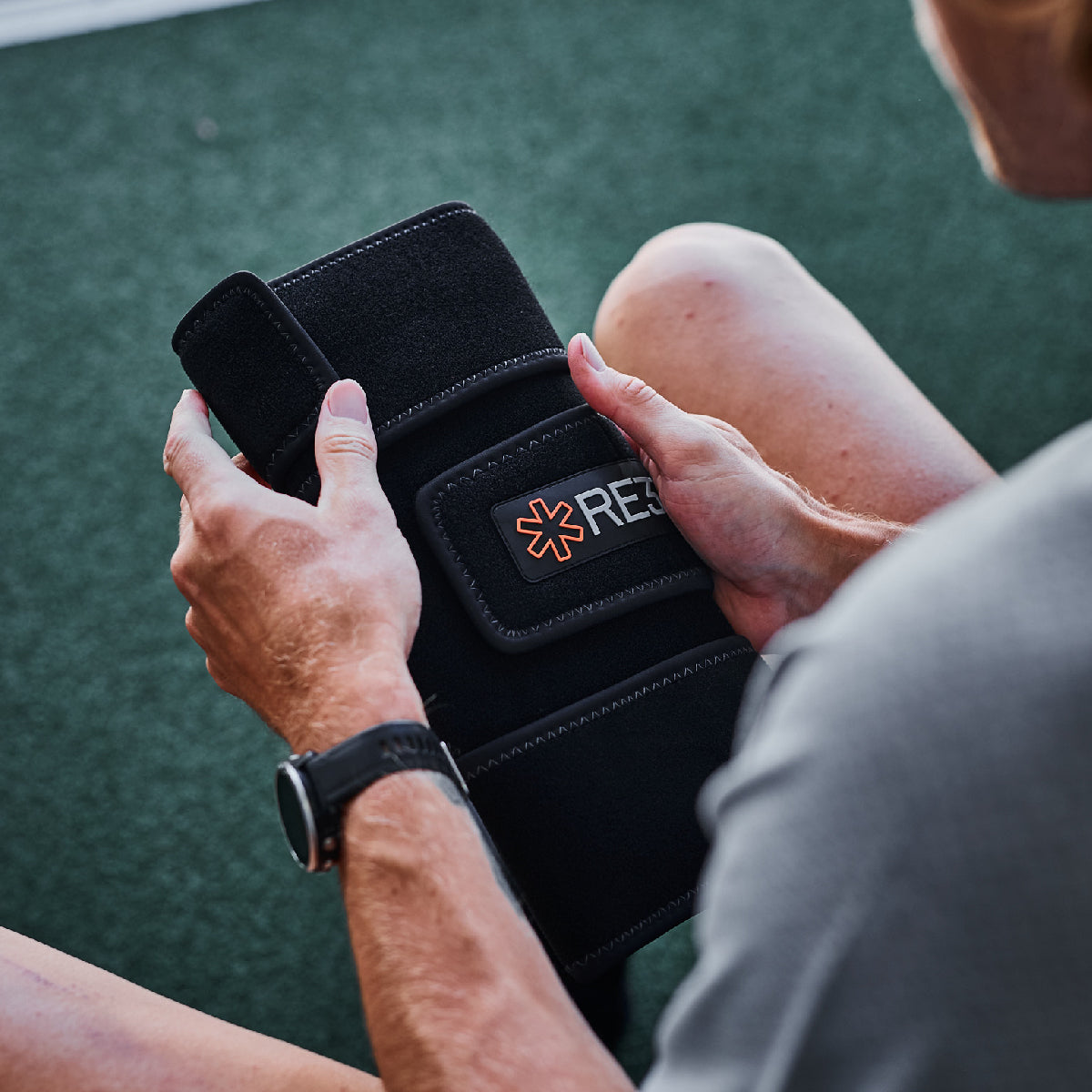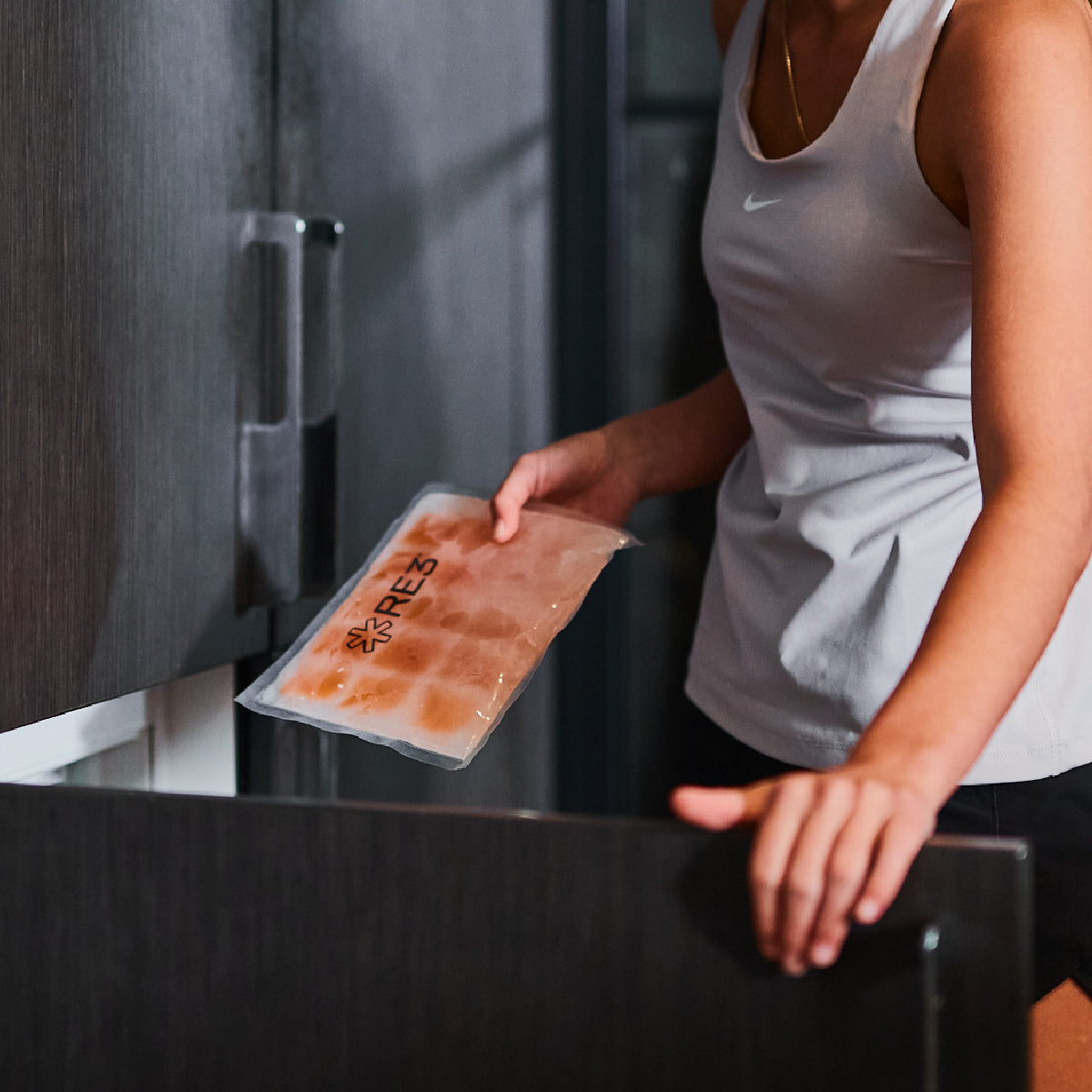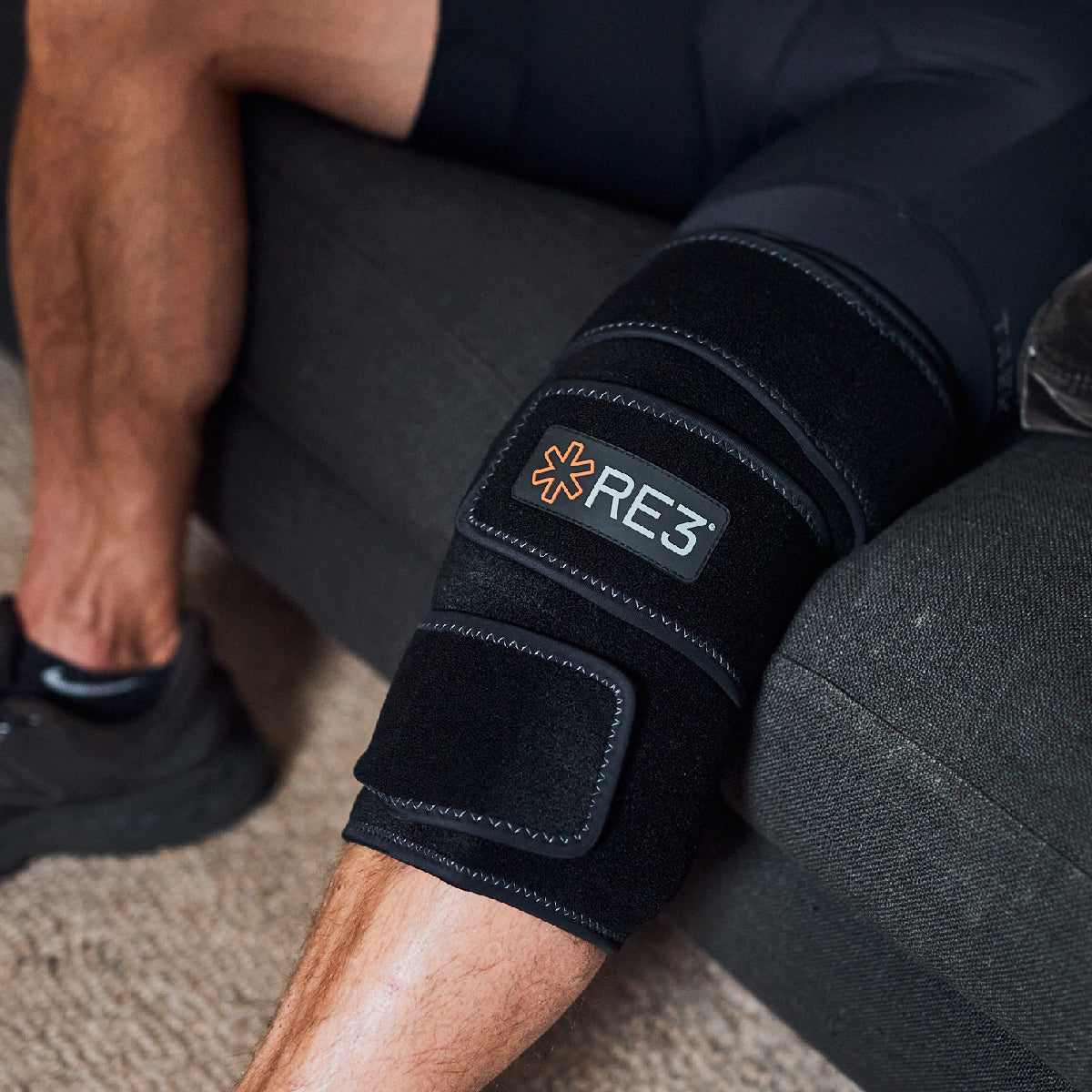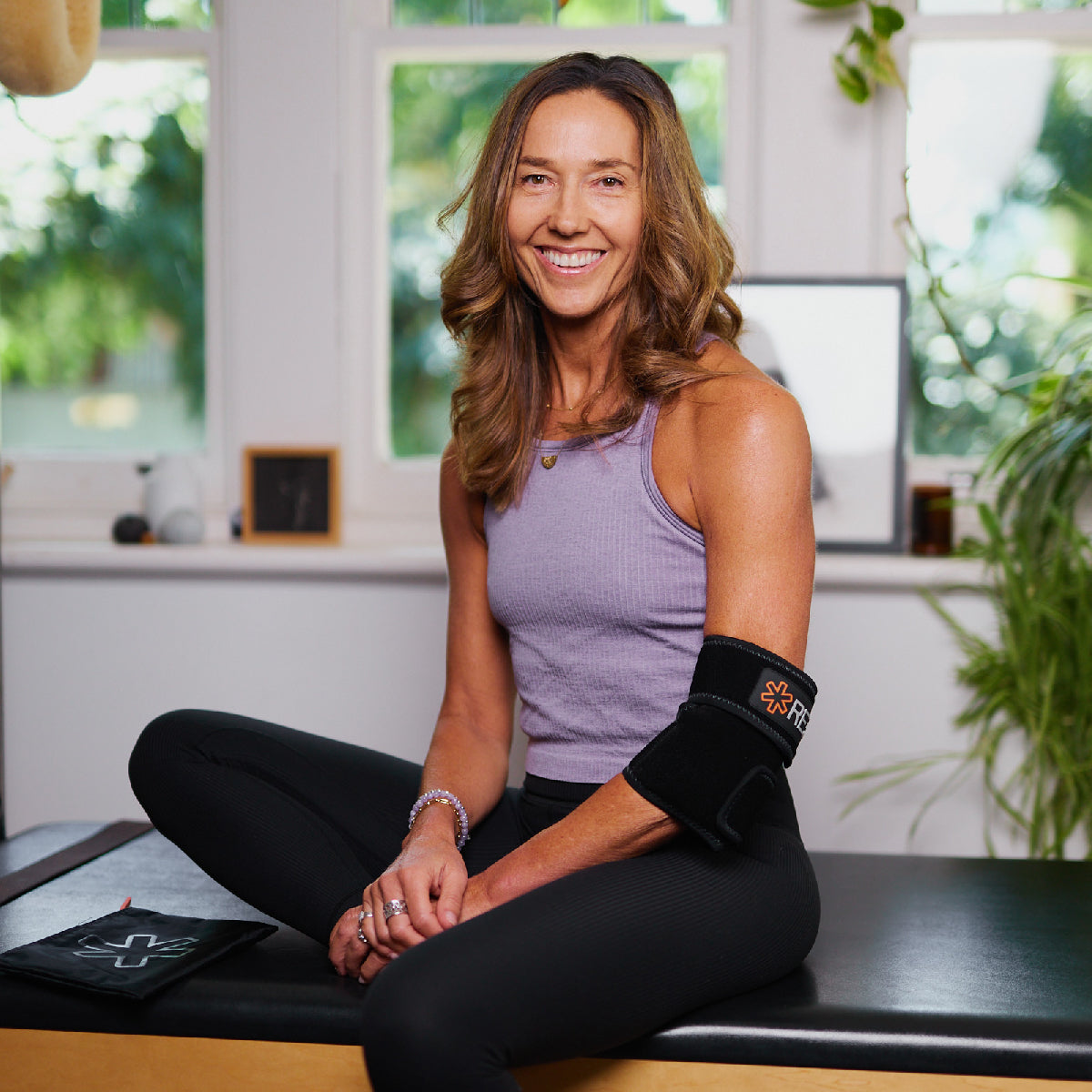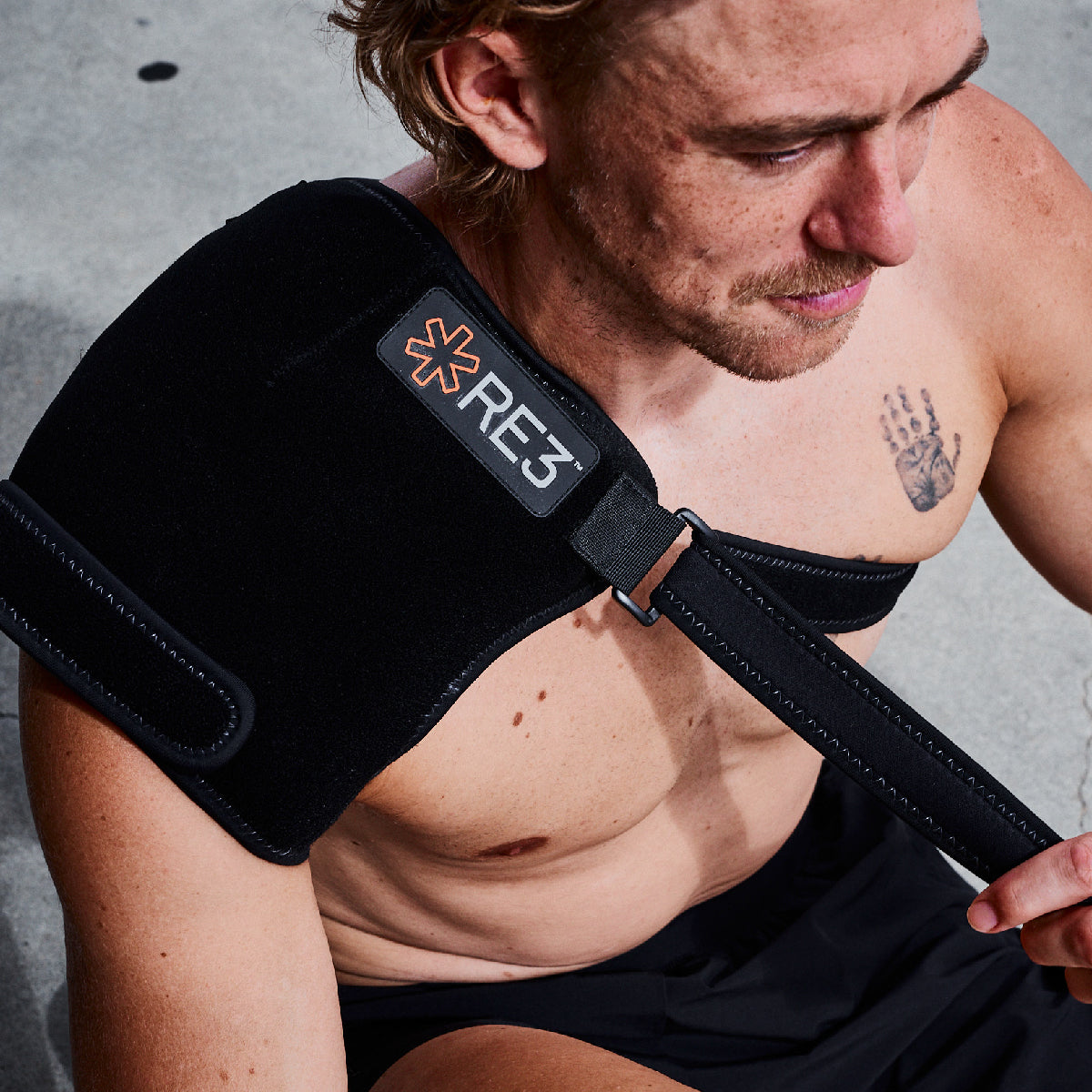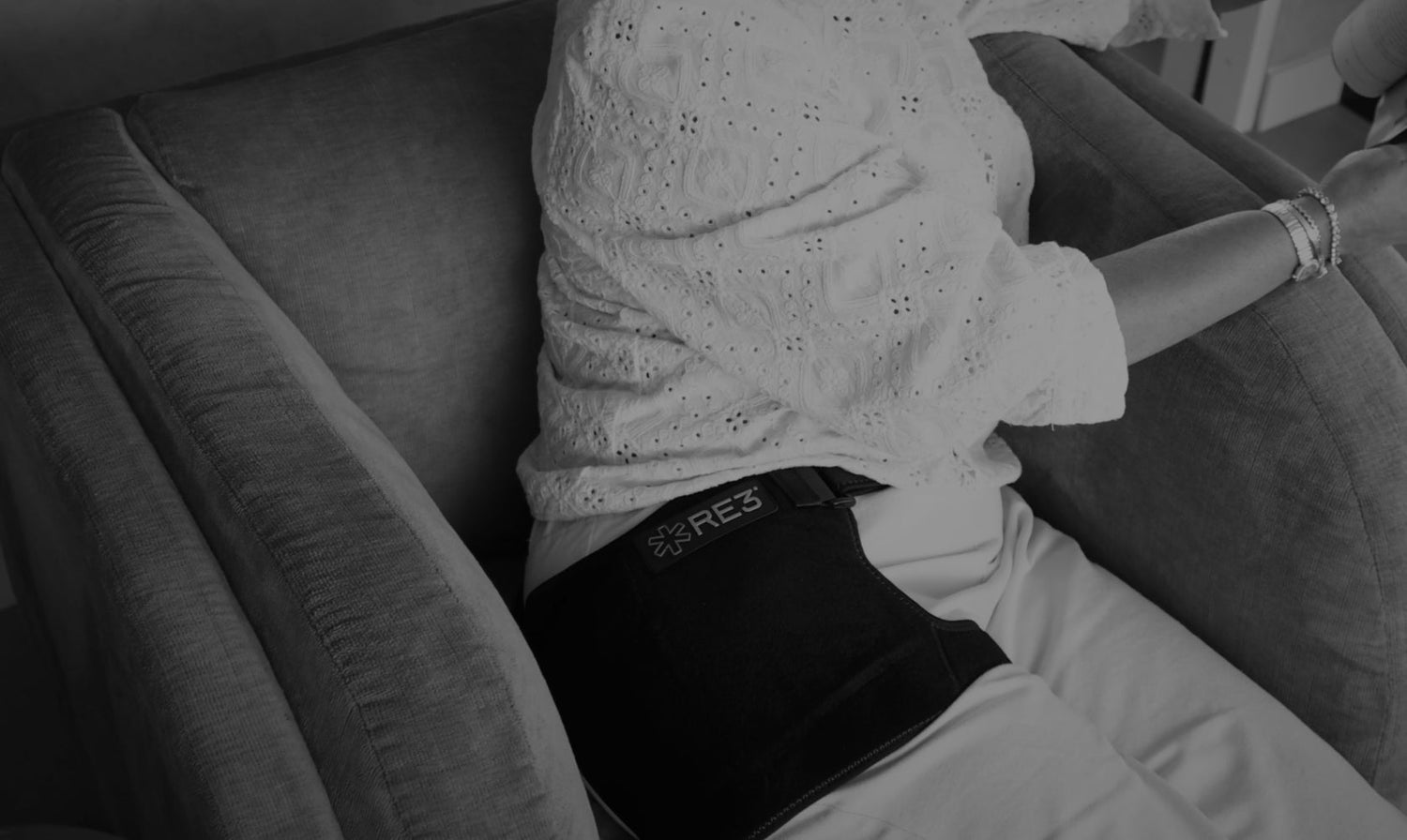Hip Surgery Recovery Tips:
Advice from Someone Who's Been There
Hip replacement surgery is one of the most common orthopedic procedures today. But while it's routine, recovery can feel anything but. From your first step out of bed to walking pain-free again, it's a journey that demands time, the right tools, and a whole lot of patience.
We sat down with Chyka Keebaugh, a hip surgery patient who’s been through it all, to uncover her top hip surgery recovery tips. Here's what she learned, and what she wishes she knew sooner:
Table of Contents:

IMAGE: LORRAINE MAGASANIK, PILATES INSTRUCTOR - RE3 AMBASSADOR
1. Commit To Pre-Op Rehab Early
"My surgeon encouraged me to get strong before surgery," says Chyka.
She focused on:
-
Working with a physio to strengthen her hips
-
Pilates with her physio to activate her core and hip flexors
-
Meeting her post-op rehab team in advance to build relationships
-
Reviewing medications and supplements with her Physician
Tip: Get familiar with your post-op support team early, knowing who will guide you through recovery makes a big difference.
2. Make the Most of Your Hospital Stay
"The nurses were angels, and I was surprised, I never felt pain in hospital and I was expecting to," Chyka recalls.
The physio made daily visits/check ins and had Chyka up and moving the day after surgery. It felt counterintuitive, but that early movement made a big difference, and surprisingly, it wasn’t painful. She remembers the moment her surgeon walked in and said, “Alright, let’s get up!”
Tip: Trust your rehab team, they have the process down pat. Early mobility, even with an embarrassing walker, is essential to regaining confidence to walk and tells your brain there's no pain to worry about.
When do you start walking after a hip replacement?
Chyka had her surgery in the morning and was up and walking the very next day. While that first step might feel daunting, early movement is key to recovery.
A friend gave her one golden piece of advice: do the exercises they give you, no excuses.
And while Chyka took that to heart, she admits she may have overdone it once she got home. “I thought doing more would help me recover faster, but that wasn’t the case,” she says. Recovery is about consistency, not intensity.

3. Prioritise Icing at Home
Swelling and inflammation are no joke post-surgery. For Chyka, icing was non-negotiable and recommended by her surgeon.
At the hospital ice-packs were on rotation non-stop. At home she had some typical packs you buy at the chemist, but they were uncomfortable, leaky, and would get warm easily. A girlfriend recommended the RE3 Hip Ice Compression Pack, which was a game-changer.
"With RE3, I could walk around while icing, it actually stayed on my hip and was cold for ages. I loved that it had a second ice pack to put in the freezer so I could keep treatment up like they did in hospital. It also helped me get off the pain meds earlier."
Tip: Use Cold therapy that stays at the optimal 10–13°C for at least 20 minutes at a time, several times a day.
4. Expect Your Recovery To Go Longer
Chyka thought she’d be feeling great at the six-week mark, but her recovery took longer. Everyone's body heals differently. Comparing yourself to others can be discouraging.
"I had to remind myself this was my journey. It wasn’t going to look like my friend's who recovered quicker," she says.
Tip: Focus on your own progress and celebrate the small wins, every step counts.
5. Do Your Exercises (But Don’t Overdo It)
Yes, those “silly” rehab exercises really do matter. Chyka was told to stick to the plan and she did. But in the early days, she admits she went a little too hard.
“I figured more was better… but that wasn’t true,” she says.
Her rehab team set her up with 3–4 Telehealth sessions a week. Simple hallway walks with practitioner check-ins helped build consistency and confidence towards rehab goals. She’s still seeing the same Physio and Pilates instructor today.
Movement is key, but pacing is everything.
Tip: Set a timer to get up and move every hour. Gentle, regular movement beats pushing through.
6. Call Those Friends You Never See
Recovery can feel isolating, so it’s important to stay mentally engaged. Chyka kept busy with books, phone calls, and light gardening and appreciated having her husband’s help day-to-day.
“With such a busy lifestyle, I actually enjoyed the six weeks at home. I caught up with friends and did things I hadn’t had time for in years,” she shares. “It became a positive experience.”
Tip: Don’t be afraid to ask for help or reconnect with people, you don’t have to go through recovery alone.
What is the scar like after hip replacement?
“I didn’t realise how many stitches I had but I was just so happy to have my back pain gone. The recovery pain wasn’t as intense as I expected, the pain relief was spot on.” - Chyka
Final Thoughts
Hip surgery recovery isn’t just physical, it’s a mental battle, too. Having the right mindset, tools, and support network can completely change the experience. As Chyka puts it, "With the right routine and attitude, you too can come out like a bionic women."
If you’re preparing for or recovering from hip surgery, keep these tips in mind and consider tools like RE3 to make the journey a little easier. Check out our article on Chyka here.
